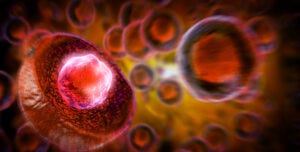
New York Blood Center Enterprises (NYBCe) has acquired cell and gene therapy (CGT) facilities in Texas and Kentucky from Talaris Therapeutics.
The facilities bring blood and stem cell services firm NYBCe approximately 20,000 square feet of autologous and allogeneic cell therapy development and manufacturing space in Louisville, Kentucky and 6,000 square feet of analytical and process development capacity in Houston, Texas.
Both facilities have been acquired from Phase II allogeneic cell therapy developer Talaris, which earlier this year merged with Tourmaline Bio. No financials regarding the sale of the plants have been divulged.

DepositPhotos/Giovanni_Cancemi
“We have acquired a combination of technologies, GMP space, process and analytical development methodologies as part of the transaction,” Jay Mohr, EVP and chief business officer at NYBCe told BioProcess Insider.
“Some of these capabilities will overlap across both autologous and allogeneic manufacturing. We will customize the existing infrastructure to the needs of the respective customer programs. We also have plans to develop the facilities further and add new talent to trend with the exciting growth in both autologous and allogeneic therapies.”
The expanded network will bolster NYBCe’s contract development and manufacturing organization (CDMO) business, Mohr continued.
“Our Comprehensive Cell Solutions (CCS) business is a CDMO that services leading biopharma and academic medical centers,” said Jay Mohr, EVP and chief business officer at NYBC.
“We implement a social enterprise model and use our existing cell therapy capabilities to deploy them based on where the need might be. For example, our vast collection and sourcing network, a unique value proposition for NYBCe, brings us closer to patients and donors nationally.”
According to Mohr, coupling this to the former-Talaris manufacturing sites makes the CDMO truly vein-to-vein.
“Our first and only EMA-approved commercial HLA testing lab is fast-tracking allogeneic therapies across both the US and Europe. Our scientists are partnering with global experts to innovate the next generation of iPSC HLA-homozygous cell lines being developed from a diverse cord blood bank that is nationally and globally recognized. Where possible, we are leveraging our expertise and staying true to our mission of making a humanitarian impact.”
About the Author
You May Also Like

schedl_b_and_w.jpg?width=100&auto=webp&quality=80&disable=upscale)
schedl_b_and_w.jpg?width=400&auto=webp&quality=80&disable=upscale)


